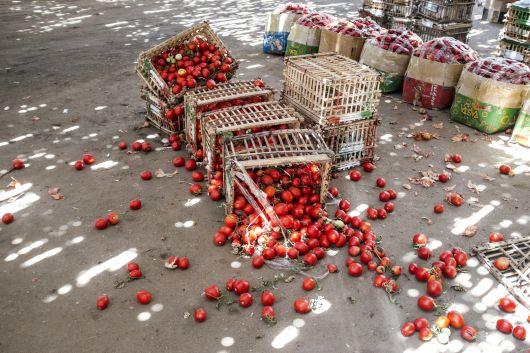FAO webinar offers solutions for reducing food waste and improving food security amidst the pandemic

An FAO webinar, focusing on Europe and Central Asia, was held to exchange and promote new practices for facilitating vulnerable groups’ access to food and tackling food waste through the development and adoption of innovative solutions. A recording of the virtual event, “Food waste prevention and reduction in times of crisis,” is available online.
Prevention and control measures related to the COVID-19 human health crisis have not only brought the fragility of our agrifood systems to the forefront, but have also further challenged them. Whereas significant amounts of food are lost and wasted at different stages of the value chain as a result of logistical and other issues, the difficulty in obtaining food donations has hampered the effort to feed the growing number of vulnerable populations (including those affected financially by the crisis) through recovering and redistributing – otherwise lost or wasted – surplus food.
To this end, experts from different sectors shared their first-hand experience and discussed solutions and practices to prevent and reduce food waste in this unprecedented situation.
“FAO encourages countries to adopt holistic approaches to tackle food loss and waste, and ensure access to food for all – particularly for vulnerable groups during the COVID-19 pandemic," said Robert van Otterdijk, FAO agro-industry officer. “As a baseline, FAO’s policy paper provides ideas for strategic measures and interventions to reduce food loss and waste in traditional food supply chains.”
Angela Frigo, the Secretary General of the European Food Banks Federation noted that during the lockdown period in Europe, food demand increased on average by 30 percent, but food banks continued to support the most needy, with digital tools making a real difference.
Liliana Annovazzi-Jakab, Head of the United Nations Economic Commission for Europe (UNECE) Agricultural Quality Standards Unit, presented the initiative called FeedUP@UN that builds on systematic tracing of food loss and online marketplaces for fast distribution of recovered food.
Noting the importance of collaboration and communication along the entire supply chain to reduce food loss and waste, Liz Goodwin, Director of the World Resources Institute, highlighted some corporate initiatives, such as the 10x20x30 that could serve as a model for others to follow.
The panel discussion featured: Ellen Oetelmans, program manager of Amsterdam Impact; Irina Kuzmina, Charity Programs Manager of X5 Retail Group; and Balázs Cseh, President of the Hungarian Food Bank Association.
11 November 2020, Budapest, Hungary
